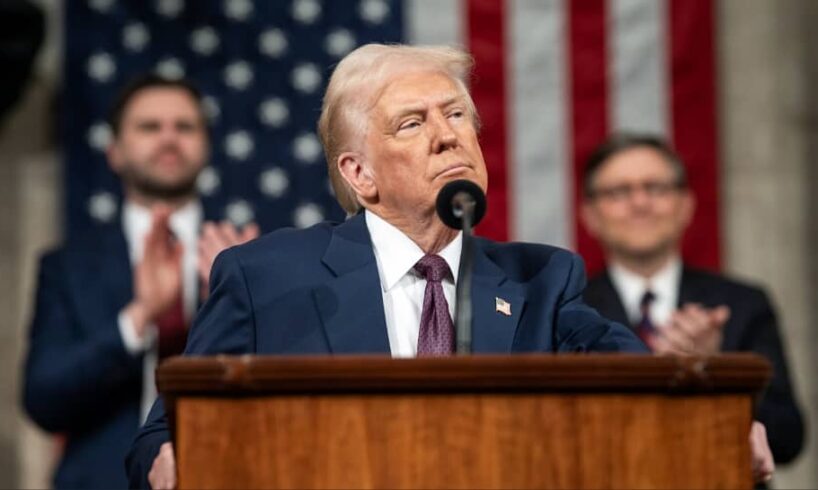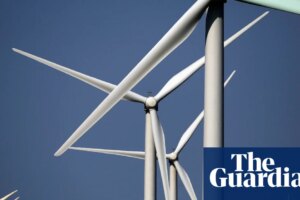
The United States is preparing to press G7 nations to impose sharply higher tariffs on India and China over their continued imports of Russian oil. The move is part of President Donald Trump’s broader strategy to curb funding for Russia’s war in Ukraine by targeting its energy revenues.
Trump is calling for tariff levels between 50 percent and 100 percent on goods linked to Russian oil purchases from the two Asian nations. G7 finance ministers are set to discuss the proposal during a video meeting on Friday. The US argues that these measures are necessary to pressure Moscow into meaningful peace talks and to cut off a major stream of income sustaining its military operations.
A US Treasury spokesperson said, “Chinese and Indian purchases of Russian oil are funding Putin’s war machine and prolonging the senseless killing of the Ukrainian people.” The official added that the tariffs would be “rescinded the day the war ends.”
Add Zee News as a Preferred Source
As per reports, the plan is also aimed at encouraging a unified Western stance. Trump administration officials have expressed readiness to act immediately, but only if European allies join the effort. One official stated the US was “ready to go right now,” but urged Europe to “step up.”
Also Read: Charlie Kirk Shooter Identified? FBI Releases Photos Of Suspected Killer; Says…
The Financial Times, citing four people briefed on the plans, reported that this push follows Trump’s earlier demand that the European Union adopt similar tariffs of up to 100% on Beijing and New Delhi.
EU Rejects Tariff Demands
However, the EU remains cautious. Officials in Brussels have rejected the idea of such sweeping trade penalties, citing concerns over economic risks and possible retaliation from China and India, both key trading partners. Instead, the EU is favouring an acceleration of its 2027 deadline to phase out Russian energy imports, alongside stricter sanctions.
The latest diplomatic exchange comes at a tense moment. Trump has voiced frustration over the lack of progress in brokering peace with Russian President Vladimir Putin, particularly following a high-profile summit in Alaska. Meanwhile, Russia recently launched its largest drone and missile attack on Ukraine to date.
Trump is expected to speak with Putin “this week or early next week,” he told reporters, expressing hope that increased pressure would force Russia to the negotiating table.
US-India Trade Talks Continue Despite Tariff Dispute
The US has already raised tariffs on certain Indian imports to 50 percent in retaliation for New Delhi’s continued oil trade with Moscow. Despite this, Trump struck a conciliatory tone online, writing on Truth Social, “India, and the United States of America, are continuing negotiations to address the trade barriers between our two Nations… I look forward to speaking with my very good friend, Prime Minister Modi, in the upcoming weeks.”
The European Union’s sanctions chief, David O’Sullivan, led the bloc’s delegation in the recent Washington discussions, which also included senior US Treasury officials.
In a related development, Mexico has announced it will raise tariffs on automobiles imported from China and several other Asian countries, from 20 percent to 50 percent, to protect domestic jobs. Mexican Economy Minister Marcelo Ebrard confirmed the move as part of a broader response to shifting global trade dynamics.
Trump’s push for tariffs also comes amid legal uncertainty. In May, a US trade court ruled that the president’s tariffs “exceed any authority granted” under current law. The decision was upheld by a federal appeals court in August, and the case is now heading to the Supreme Court in early November. The tariffs will remain in effect pending the ruling.
US Treasury Secretary Scott Bessent has acknowledged the financial risk, warning that a court defeat could lead to tens of billions of dollars in refunds. “We would have to give a refund on about half the tariffs, which would be terrible for the Treasury,” he said during an interview with NBC’s Meet the Press.
India-EU Free Trade Agreement Remains On Track
Meanwhile, the European Union’s rejection of Trump’s tariff proposal on India has been viewed positively by trade analysts. Experts say it reflects that Europe is not adopting Washington’s aggressive posture toward New Delhi. Importantly, the move also signals that ongoing negotiations between India and the EU on a Free Trade Agreement (FTA) remain on track.
According to PTI, the 13th round of FTA talks began on Monday, 8 September. European Commissioner for Trade Maroš Šefčovič is scheduled to visit India on 12 September to review progress alongside Indian Commerce and Industry Minister Piyush Goyal. The two sides are aiming to conclude the agreement by the end of the year.





